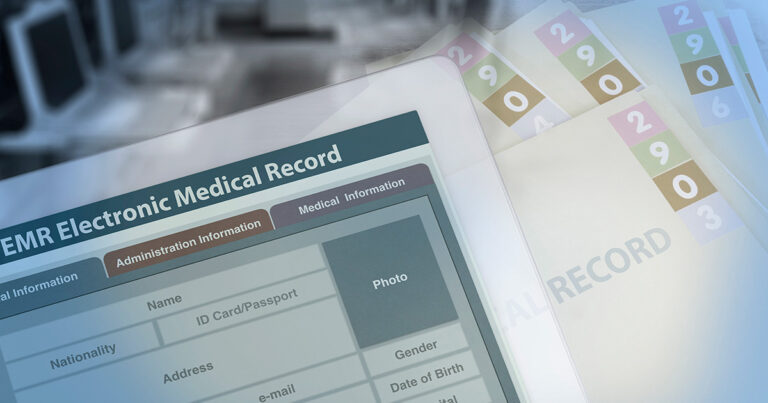How to Deal with Negative Patient Reviews
According to a survey by Software Advice, 77% of patients use online reviews for finding new healthcare services.
While the survey found that only 6% of patients leave “very negative” or “somewhat negative” reviews, nearly half of those surveyed also indicated that they would use an out-of-network doctor if they had a more favorable review.
This means that if you’re being reviewed online, every positive review counts, and every negative review counts double. Creating a favorable impression on reviewing sites like Yelp or Healthgrades is essential to business.
So what can you do to make sure your reputation remains intact, even if you receive negative feedback?
For one, remember that bad reviews don’t have to be bad for business as long as you know what to do with them. If you’re facing some less-than-stellar patient reviews, here are a few things you can do to minimize the damage.
Check out these HIPAA approved scripts for responding to patient complaints.
Respond to Negative (and Positive) Feedback
Your first instinct might be to ignore negative reviews, but ignoring them won’t make them go away. In fact, ignoring all reviews (or just responding to the positive ones) can send the signal that you don’t really care about what your patients are saying.
60% of Software Advice’s survey respondents said it’s very or moderately important for doctors to respond to online reviews.
That’s not to say you have to respond to every single review that’s made out there on the Internet. Review sites like Yelp often use algorithms to rank reviews based on what they think is most helpful. If you spend some time responding to the top comments, you will have maximum impact.
The key is to provide responses to reviews as soon as they’re posted, or as close to the posting date as possible.
Go On the Offensive, Not Defensive
When it comes to negative reviews, you want to make sure that you’re not defending or arguing with patients. If a patient criticizes your practice, don’t accuse them of being wrong or point the finger.
If they complained of an abnormally long wait time, for example, you wouldn’t say, “Our wait times are below the average compared to other clinics in the area.” Even if that’s true, that’s not what your patient experienced.
Remember that negative reviews are often fueled by emotional experiences, and the worst thing you can do is invalidate those emotions as an attempt to win them over. The best thing you can do is acknowledge that they had a negative experience and find a solution.
Say, “We’re very sorry that we didn’t meet your expectations. What can we do to help resolve this?”
If you’re not sure how to respond, consider coming up with templated or scripted responses so that you’re not caught up into the patient’s emotion when trying to respond. The other benefit of having something prepared is that you can respond and find a solution much faster, which only bolsters your reputation.

Take the Conversation Offline
You should also consider whether or not you want to respond to the review publicly or privately. A public response shows other reviewers or potential patients that you care, but if the complaint is specific enough or borders on being a HIPAA violation, you may want to contact the reviewer directly. Alternatively, you could leave a scripted public response and follow up in person.
Of course, that’s not always possible. Many review sites allow users to publish their name without any contact information, and they can write whatever they want, even if it’s of a personal nature. This means you may not have any other choice to respond to comments online.
If this is the case, the best thing you can do is give them a way to contact you directly and wait to see if they follow up. Also be sure that you’re not violating HIPAA standards in your responses.
If there are threats made against your clinic (lawsuits or other legal actions), be sure to consult your legal department as well as the review site. In general it’s not necessarily a best practice to ask for negative comments to be removed, but if there is private information being revealed – either about the patient or about other patients or doctors in your clinic – or threats being made, you may need to have the review flagged and removed.
Remember that the protection of patient confidentiality is your highest priority. If possible, keep things vague and ask the patient to contact you directly for further questions or comments. Again, scripts can help with this to minimize the emotional impact on both ends.
Monitor Your Online Reputation
While it may feel overwhelming to spend time responding to reviews, there are plenty of upsides to monitoring your online reputation.
For one, it’s a way to protect your company. If you can get ahead of negative reviews by responding to them quickly and professionally and mitigating any potential threats or overt issues, you can prevent unnecessary slander against your business.
Monitoring your reputation also allows you a chance to correct any practices within your operations that may be inadvertently causing negative reviews. If your waiting times really are too long, for example, there could be some underlying issues you may need to address.
You can monitor what people are saying about you using a variety of tools. Social Mention and Google Alerts are free tools that notify you when your name or information comes up on social media or in search results. You should also familiarize yourself with how review sites like Yelp filter and rank reviews so you know how to prioritize your responses.
You can also claim your profile on those sites to give you more control over what reviews and responses are displayed. In addition to Yelp, physician-rating sites like HealthGrades and RateMDs both allow you to claim a profile. If you’re not already in control of a profile on sites where you’re being reviewed, you should be.
Alternatively you can ask users to leave reviews on your own website, where they can be better monitored. Again, this isn’t about eliminating negative reviews, but simply keeping better track of what is being said about your company, doctors and staff online.
Final Thoughts
It’s important that people within your organization are aware of the reviews you’ve received, both positive and negative. Negative reviews can be an indicator that there are practices you need to improve, so don’t dismiss them outright. Instead, formulate a plan to respond to users quickly and make any necessary adjustments to their care if possible.
Keep in mind that there is a possibility that some of your reviews have been faked. If the negative review is obviously fake or you have doubts about its authenticity, contact the review site and ask them to review it and/or remove it on your behalf.
As much as possible, attempt to take a proactive approach to generating reviews on your own site, or even asking patients who give positive feedback in person to go online and leave a positive review. Remember that if the majority of your feedback is positive, you shouldn’t have anything to fear from a negative review or two.







